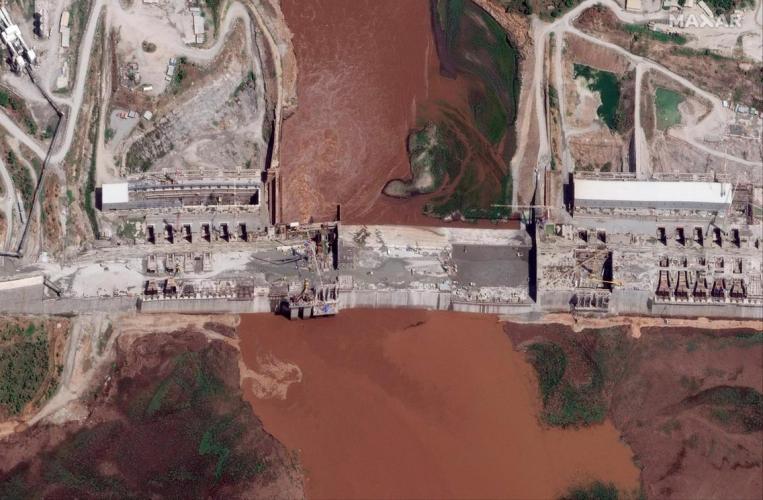Sudan to sue Ethiopia over unilateral GERD’s filling

April 24, 2021 (KHARTOUM) – Sudan will sue Ethiopia before the international courts if the latter unilaterally carry out a second filling without concluding a legally binding agreement on the Grand Ethiopian Renaissance Dam (GERD).
Sudan’s Minister of Irrigation Yasir Abbas posted several tweets on Thursday to speak about what his government would do, after the Ethiopian rejection of a tripartite meeting by Prime Minister Abdalla Hamdok to discuss the way forward following the failure of the Kinshasa meeting.
Abbas said that his government is considering various options to protect the country from the risks of the giant dam and its environmental and social impacts on the downstream country.
These options include “The International Court of Justice, The Human Rights Commissions, and the COMESA Court,” he said.
He further stressed that Sudan will “file lawsuits against the Italian contracting company and the Ethiopian government”.
He added that his government will launch a diplomatic campaign and mobilize global and regional public opinion to press Ethiopia to sign a legally binding agreement.
Ethiopia says determined to fill the reservoir for the second year in July with 13.5 million cubic meters of water, whether an agreement is reached or not.
Earlier this year, the Sudanese government released a report on the GERD’s impact showing the damages caused by the unilateral first filling of the GERD reservoir with only 4.9 billion cubic meters.
Commenting on the Ethiopian proposal to exchange data without an agreement, the Sudanese minister said Addis Ababa dodges signing an agreement and seeks to buy time to render the filling of the GERD a fait-accompli.
“We are surprised by Ethiopia’s proposal to exchange data without signing an agreement, as they demanded in an official letter on December 8, 2020, by the Ethiopian Minister of Irrigation,” said Abbas.
Earlier this month, Khartoum and Cairo rejected a proposal made by Addis Ababa to exchange data on the second filling of the Grand Ethiopian Renaissance Dam (GERD) without striking a legally binding agreement the downstream countries call for.
The giant hydropower dam was designed in 2011 to be the cornerstone of Ethiopia’s bid to become the largest source of energy in Africa, generating more than 6000 MW.
Ethiopia recently demanded to include a water-sharing clause in the talks on the GERD filling and operation.
This week, Ethiopia foreign ministry spokesman accused the two downstream countries of seeking to prevent Ethiopia from using the waters of the Renaissance Dam under the pretext of “concluding a comprehensive, binding agreement”
However, the Sudanese minister rejected this claim saying that the agreement does not “diminish the sovereignty or rights of Ethiopia”.
“On the contrary, it provides Ethiopia with its full set of rights and protects the interests of Sudan,” he added.
(ST)
